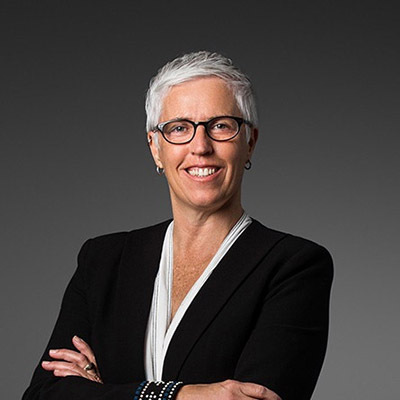

As we go to press, New South Wales is just about to ring up the two-year anniversary of COVID-related public health measures. We know what followed: rapid uptake of AVL hearings, increased use of Online Court, the sudden and repeated imposition of work-from- home orders, balancing child and pet care responsibilities, innumerable ‘You’re on mute, Ms Smith’, and a hard-learned familiarity with the sequential letters of the Greek alphabet. More substantively, for a great many barristers there was a significant disruption to their established practice.
Two years later, on the ‘cotton anniversary’, we are getting our cotton bands and jabots dry-cleaned in preparation for in-person appearances and crossing our collective fingers that the present re-emergence from pandemic restrictions will herald a steady progress into the ‘new normal’.
We spoke to three barristers with experience of practice both before and during the pandemic about what they see as the opportunities and challenges of online practice. What should we take forward, what
should we leave behind and what should we adapt to an (eventual) post-pandemic practice? How is collegiality to be fostered? What is to happen to physical chambers?
OBSERVATIONS FROM BARRISTERS
GILLIAN MAHONY
8 WENTWORTH

Bar News (BN): How have you noticed online appearances affecting the profession?
Gillian Mahony (GM): One of the most difficult aspects of appearances moving online has been maintaining collegiality, not only socially but also professionally. One of the things I’ve noticed is the lack of consultation before attending interlocutory appearances. Those who are new to the Bar may not have had the opportunity to experience how good that five- or ten-minute conversation with your opponent can be, outside in the hallway before going into court, so you’re not having those really petty disputes about dates – which we emphasise in the Bar Practice Course – judicial officers do not want to have to decide for you.
There’s a real lack of that occurring at the moment, particularly because solicitors are doing more of the direction hearing and mention work that the junior bar used to do, and I don’t think they’re doing it necessarily as well as the junior bar. I think that’s a real deficit for the profession generally. Being able to progress matters in an appropriate and timely manner and one that complies with the CPA and UCPR about efficient use of court time can be made more difficult in the absence of communication. Those conversations also forge collegiality, and allow you to understand your opponent, what their strengths are, and whether they are reliable.
BN: You’ve been course director of the Bar Practice Course for several years. What is the BPC doing to address remote working?
GM: One of the things that we have tried to include in the BPC is to forge ways of achieving collegiality in the absence of being able to do it in person. It’s been difficult, and I’m not sure that we’ve probably succeeded all that well because there is nothing better than going out for coffee, lunch or a walk – or that social gathering at the end of the BPC where readers can say, ‘Wow, we’ve survived!’. Where possible we have run a hybrid course – part in-person, part online. We have held online drinks for the readers during the course (including with floor clerks), we encourage communication with other readers outside of the course and we’ve supported readers creating WhatsApp groups and the like.
BN: How have you, as a senior junior, sought to foster junior juniors’ informal, on-the-job training in the absence of in-person hearings?
GM: When I appear in a short AVL application I will have a reader come and sit with me on the AVL link well in advance of my matter being called, because they need to know what the practice in that particular list is like. There is great advantage to logging on 15–20 minutes early to hear how senior juniors and mid-level juniors respond to difficult questions. If you can hear someone getting battered because they weren’t prepared, it is a lesson to address a problem in your case before your matter is called on, and quickly get any instructions you need.
BN: Does that affect how lists should be administered on AVL?
GM: If a list is administered on AVL in such a manner that there is a limit on how many people can log on at once, that deprives young barristers (and our solicitor friends) from learning by listening in.
BN: Are there benefits to online appearances, at least for interlocutory matters, that we should seek to retain?
GM: Online directions hearings allow for a more flexible working environment. That will be a benefit for those with care responsibilities – children, elderly parents, an unwell partner – and that should be maintained, also because it’s more cost- effective than hanging around court for three hours for a short mention. I’d like to see more of that open communication whichoccurswhen you’re physically present in court. It should be expected that, even when appearing online, there be discussion in advance to ensure that the court only has to decide on matters on which there can be no agreement. An appropriate way to formalise this expectation may be, for example, protocols published by the relevant list judges. Online appearances aren’t a bad development, they just need to be fine-tuned.
GEORGINA WESTGARTH
6 SELBOURNE WENTWORTH

Bar News (BN): What was your overall experience of working remotely?
Georgina Westgarth (GW): I’m on maternity leave and about to comeback, and one of the benefits I’ve found is the ability to keep on taking part in the New Barristers Committee and Bar Council. I think if you have parenting responsibilities, the ability to do Zoom meetings is beneficial. Beyond that, there are benefits to remote working such as saving on commuting time.
What I found I really noticed was that I lost social interactions with my colleagues, and for junior juniors, you lose those casual chats in the coffee room or the ability to knock on someone’s door and just quickly ask a question. While the open-door policy, of course, still applies even while working remotely, it is more invasive to call a colleague’s mobile: you don’t know if they’re busy, if you’re interrupting.
Also, I didn’t like that I didn’t have the separation between home and work, and I found that I was working much longer hours because work was just always there to do – and perhaps because we didn’t have much else to do as we were all in lockdown!
BN: Were there particular challenges for remote appearances?
GW: I found it more difficult to communicate with my leader, because ordinarily a lot of communication is done with a look or by pointing. You have to be quite fast at typing a text message if you’re not in the same room! I also found it difficult in terms of not being able to ‘read the Bench’ and often you lose the productive social interactions with the other side of the Bar table.
BN: Has it impacted the practice of counsel narrowing the issues in contention by consent, particularly on interlocutory appearances?
GW: Yes, I definitely found that. What it taught me was that you have to pick up the phone to your opponent quite early on to start that dialogue about what can be agreed, because you’re not physically with each other at recess and lunchtime to reach agreement. It’s possible to achieve, but you have to be organised and get in touch with opposing counsel sooner.
BN: You are chair of the New Barristers Committee. What advice do you have for new barristers, and for established barristers who are seeking to be good colleagues to new barristers, during remote working?
GW: I’d encourage all new barristers to get involved in events as much as they can, and to reach out to other barristers on their floor and elsewhere. There is still an open- door policy, but as a new barrister you have to be a bit brave and start reaching out to others to let them know how they can help you and what areas of law you’re interested in. I think it’s also up to the rest of us to make sure that we look out for those new barristers. When we are able to go into chambers, drop them a line and go out for coffee – or even just give them a call and see how they’re going.
STEPHEN RYAN
EVATT CHAMBERS (NEWCASTLE)

Bar News (BN): You practise in Newcastle, which has been less affected by lockdowns than Sydney. What has been your experience of remote practice?
Stephen Ryan (SR): I was relatively slow to pick up on the use of technology because I very much enjoyed the social side of doing an appearance, then having coffee with my opponents or instructing solicitors. After many years of resistance, I have now also embraced working from home. Being forced to do it, I have become used to it, procrastination has been reduced and I’m getting through the work better. It’s also helped that prisons and government agencies have improved their use of technology. The uptake of AVL by courts for interlocutory hearings has been welcome: as an example, when I am in Tamworth District Court appearing via AVL I can do that without the four and a half-hour drive each way and I’ve saved the client the solicitor’s attendance fee too.
BN: So, in theory, with AVL appearances, you could be in Byron Bay Local Court and Bega Local Court on the same day?
SR: In theory, but in practice you don’t, because in a callover list matters will be juggled around and possibly mentioned multiple times. You can’t safely log off one list and log onto the other!
BN: Is it difficult to sort things out with your opponent with remote appearances?
SR: Well, the text messages and the emails fly! But I’m also a big believer that you don’t leave it to the day of a callover to tell the Crown than you don’t need this or that witness. In my practice, which is 80 per cent or 90 per cent criminal law, I learnt early on to pick up the phone to the Crown a week or two before the callover because quite often the counsel for the Crown doesn’t attend the callover anyway, just an instructing solicitor who does not have authority to settle and has not memorised the witness list.
BN: Has the lockdown impacted your ability to cultivate your relationships with instructing solicitors?
SR: My practice before COVID was to go to solicitors’ offices for conferences as much as possible because I find that often I would meet one solicitor in a firm, and I then meet another one who promptly briefs me on another matter. During lockdown, I maintain contact with my solicitors by telephone as much as possible.
BN: Does remote working affect the future of established physical chambers in regional areas?
SR: I would imagine there would be a lot of regional barristers considering whether they need to fork out for established chambers, as, for a lot of us, the work comes to us directly as our name is our practice. For me, calls from solicitors or clients come directly to my mobile, rather than through a clerk. Although of course you’d need a street address to collect the mail!
BN: How has lockdown affected your ability to socialise with professional colleagues?
SR: I’ve probably saved hundreds of dollars in coffees not purchased for solicitors! But I do make the effort to call up solicitors and barrister colleagues. It’s not a good thing for the Bar that we’re not bumping into each other as much as we used to, but the onus is on us to pick up the phone or get out and meet people when we can.
WHITHER THE NEW SOUTH WALES BAR?
Perhaps the closing words on the future of barristerial practice in NSW belong to our newly installed chief justice who at his swearing in remarked that For the immediate future, my strong hope is that 2022 is the year which sees the reversal of the unintended, but insidious, de-personalisation of the legal profession brought about as a result of COVID...while the remote practise of law may be possible ,it is far from desirable. It is in cumbent on senior practitioners of the profession to take the lead in the return to professional life as we knew it more than two years ago. Just as there is nothing quite so demoralising or dispiriting as walking down a strip of shops to find half of them empty, chambers and solicitors’ offices which are half-full will rapidly lose their soul and personality. That would be a very bad thing indeed. It must not happen.
BN
